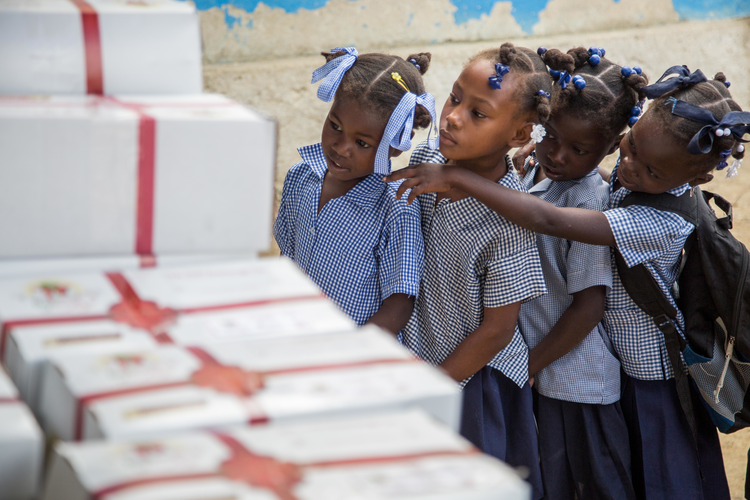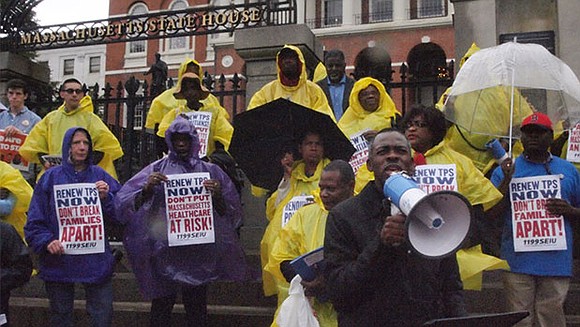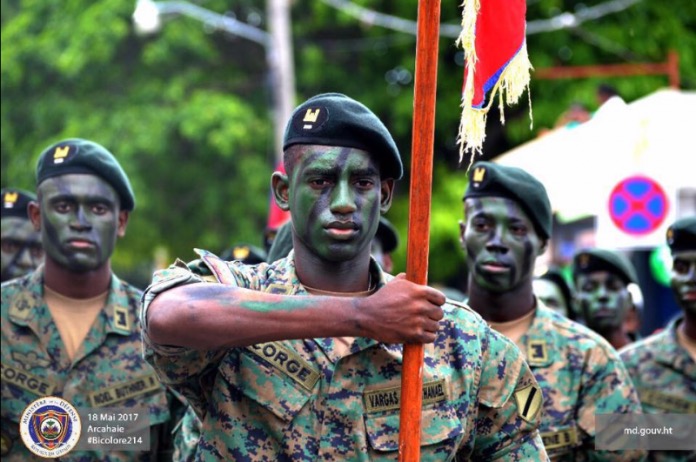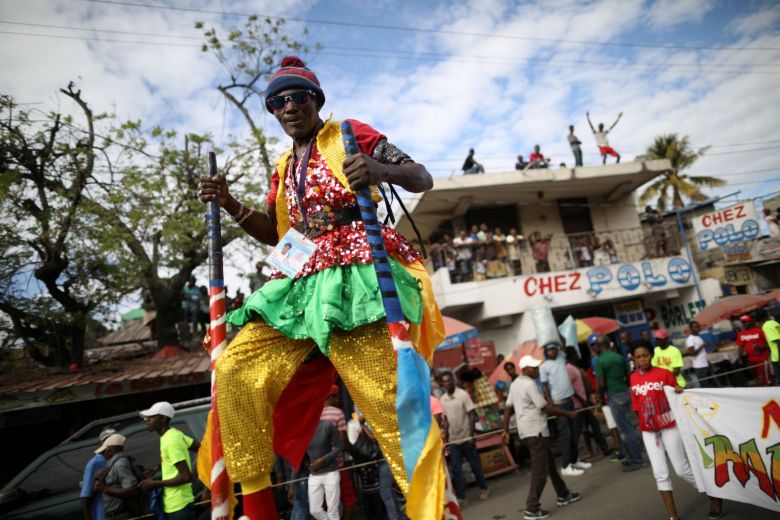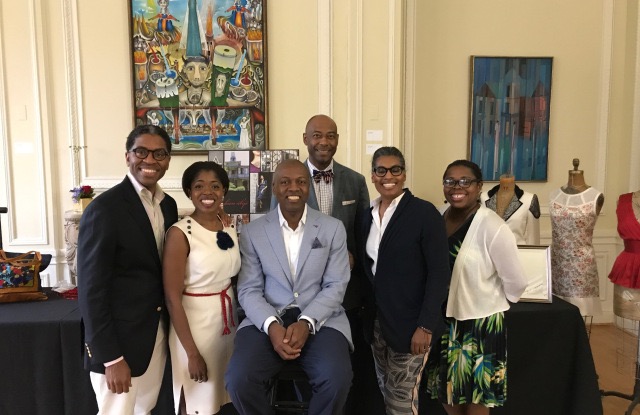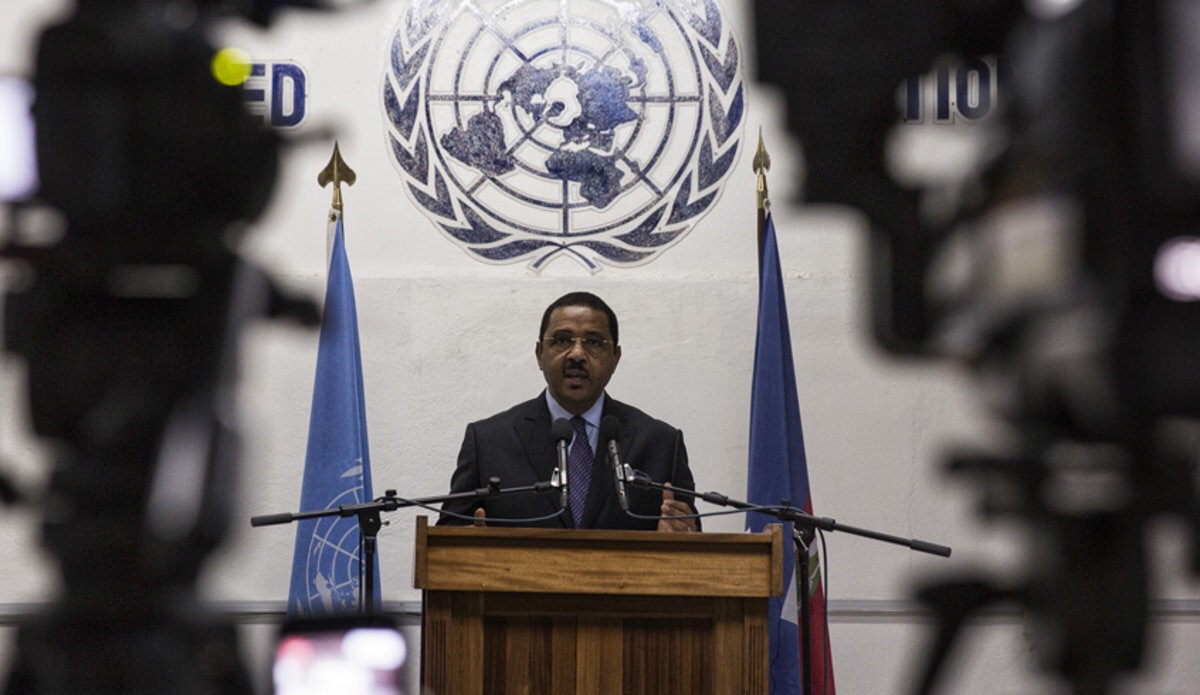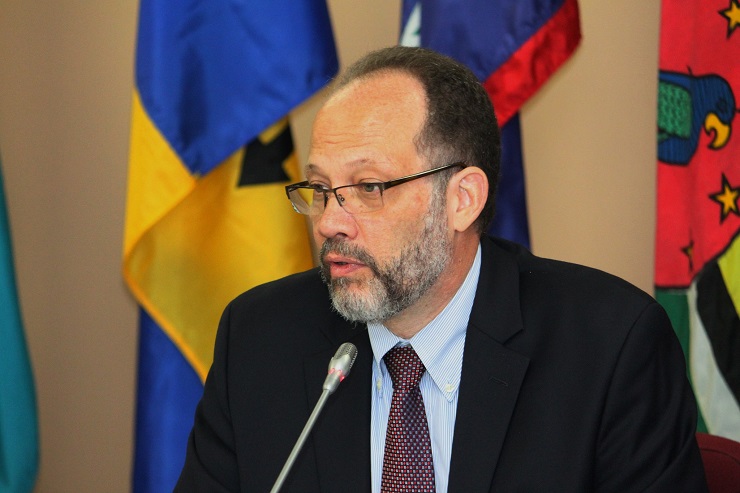I was in Haiti early this month. It was my first trip there, and I arrived uncertain of what I would find. A country battered by one disaster after another and often represented as the problem child of the Western Hemisphere had come to seem almost imaginary to me, luckless and mythical. But Haiti was real and rewarding, a country of intriguing contrasts—between the richness of the country’s past and the poverty of its present, between the expansiveness and warmth of the people and the scarcity of the resources available to them. From the squalid shantytowns of Port-au-Prince to the bland suburbs of America, a starker contrast with the United States would be hard to find.
The plane from Miami to Port-au-Prince was filled with Americans, most of whom seemed to be there on mission trips. There was much good will and no doubt much good work being done. The high school student sitting beside me was there to teach dental hygiene; her schoolmate was painting a mural as part of a group art project; a third friend was distributing water purification systems that use the sun’s ultraviolet light to filter out bacteria. Access to potable water is a major concern in Haiti. Contaminated water spreads disease and is the leading cause of infant mortality in a country with the highest infant mortality rate and the greatest poverty in the Western Hemisphere. I had assumed impure water was primarily a technical problem, but efforts to provide clean drinking water require education, community buy-in and ongoing attention, all of which can be difficult in a poor country with a high illiteracy rate.
“On the ground in Haiti, it is easy to see that just as wealth breeds wealth, poverty begets poverty.”
On the ground in Haiti, it is easy to see that just as wealth breeds wealth, poverty begets poverty. People who are poor cannot be taxed much, and a government without resources cannot provide much for its people. Foreign aid can be problematic, as much a hindrance as a help. In Haiti, U.S food aid flooding the market has provided cheap food but driven many Haitian farmers off the land. Haiti has a reputation for corrupt government, but waste, mismanagement, fraud and corruption also plague charities, non-governmental organizations and aid agencies. Only a small fraction of the outside aid pledged to Haiti after the 2010 earthquake actually reached the Haitian people. Concerned about corruption, donors circumvented the Haitian government. Unfamiliar with local conditions and resources, they squandered millions of dollars in ill-conceived and poorly executed projects that actually made life worse for Haitians. A 2012 article by Ian Birrell in The Daily Mail reported that as mistakes mounted and money was wasted, “prices of food and basic supplies for local people soared, sanitation deteriorated, there was less safe water to drink and well-meaning interventions made matters infinitely worse.”
“In Haiti, foreign aid can be problematic, as much a hindrance as a help.”
Jonathan Katz, the only full-time journalist in Haiti at the time of the earthquake, tells the story in his book The Big Truck: How the World Came to Save Haiti and Left a Disaster Behind. U.N. troops brought cholera to a country where it had not existed; charities, the American Red Cross notable among them, used the millions of dollars collected for earthquake relief for their own purposes; aid workers from outside the country who swarmed into Haiti operated without oversight or accountability.
“Two centuries of turmoil and foreign meddling had left a Haitian state so anemic it couldn’t even count how many citizens it had,” Mr. Katz writes. After the quake, the almost-absolute power of aid groups operating independent of the Haitian government weakened an already weak state, delegitimizing it in the eyes of its people.
“There was no way for Haitians to appeal an NGO decision, prosecute a bad soldier, or vote an unwanted USAID project out of a neighborhood,” he writes.
“More N.G.O.s exist per capita in Haiti than in any other country.”
“They are helping, but they are not here to solve our problems,” said Jean-Ronald Jocelyn, a Haitian who is education program manager at Hope for Haiti, a nonprofit that has operated in Haiti for 28 years and is largely staffed by Haitians. Mr. Jocelyn said economic development is a long-term problem that the government should take care of.
“The N.G.O.s help poor people but don’t help them to get out of poverty,” he said. “The government is like the N.G.O.s, providing day-to-day assistance but not a long-term program for development.” Incapacity, rather than indifference, is at the root of the government’s failure.
“The N.G.O.s help poor people but don’t help them to get out of poverty.”
“Foreign assistance works best when institutions are stronger,” said Mr. Cohen. Without a strong ministry of education, Mr. Cohen said he wondered how nonprofits can complete the work they are doing in Haiti and leave the country.
Leaving Haiti should be a goal of every N.G.O., Ms. Ciccarello said. While making a long-term commitment to the country and forming relationships with Haitians are critical to successful work, N.G.O. officials from outside the country need to train Haitians to replace them. Many N.G.O.s do not register with the government; Ms. Ciccarello said registering is important if they seek sustainability for their work.
“Leaving Haiti should be a goal of every N.G.O.”
“Politics is one of the worst things in Haiti. Everyone wants to be in power to fill their pockets, not to help the country to grow,” one Haitian priest told me.
I did not come back to the United States with any ready answers as to how Haiti can overcome the immense political and economic challenges it faces. I doubt there are many ready answers. As to why Haiti is plagued by poverty, I learned just enough to know it is complicated. There is a long history of foreign interference, intrusions and demands going back to Haiti’s first years as a nation when it was forced to pay France exorbitant reparations for the freedom it had won, reparations that continued until the 1950s. The United States, which occupied Haiti from 1915 to 1934, has its own checkered history there, often lending its support to nondemocratic elements and strong-arming unfair trade policies that benefit U.S. interests at the expense of Haitians. In different forms, the domination of Haiti by outside forces continues.
The complexities of aid are daunting—the politics and the delivery of it, the effort, intelligence and sensitivity it takes to help others without depriving them of agency or imposing what can easily seem new modes of neocolonialism. Doing good well may be a form of grace. I met admirable Americans performing admirable deeds in Haiti, but I left thinking that despite significant, even life-saving work, Haiti’s fundamental problems are unlikely to be solved by outside angels swooping in and out. The country’s greatest need is not more aid groups or missioners but a more functional state with stronger public institutions and leaders committed to service, not self-enrichment.
For all its manifold problems, Haiti is not a gloomy place. In the southern city of Les Cayes, a Catholic priest I spoke to offered the most encouraging words I heard. He had just offered a witheringly realistic assessment of Haiti’s present and immediate future when he said: “What gives strength is the conviviality, joy and courage of the Haitian people. Haitians are very courageous.”
By: Margot Patterson | America – The Jesuit Review | February 22, 2018









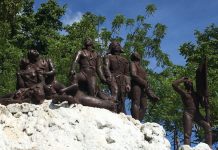



















![Phyllisia Ross – KONSA [Official Music Video]](https://haitiville.com/wp-content/uploads/2014/08/phyliisia.jpg)
